What Is Lung Cancer?
Lung cancer is a condition where abnormal cells grow uncontrollably in the lungs, forming tumors that interfere with normal lung function. The lungs, two soft, spongy organs located in the chest, are essential for respiration — they help bring oxygen into the body and expel carbon dioxide.
This type of cancer has become one of the most common and deadliest forms worldwide. While smoking remains the leading cause, it’s important to note that lung cancer can also affect non-smokers.
The risk increases with:
The number of cigarettes smoked per day
The duration of smoking habits over time
Even secondhand smoke, environmental pollutants, and certain occupational exposures can raise the chances of developing the disease. Early detection is critical, as symptoms often appear only in later stages.
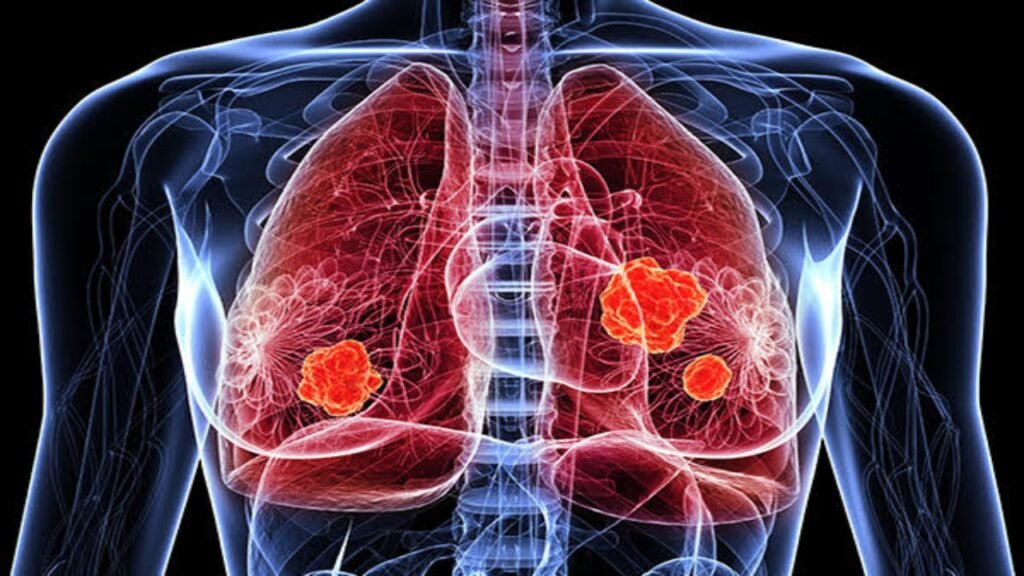
What Are the Causes of Lung Cancer?
One of the leading causes of lung cancer is smoking. The harmful chemicals (carcinogens) present in cigarette smoke damage the cells lining the lungs. Initially, the body may repair some of this damage, but over time, repeated exposure leads to permanent changes in the cells. These abnormal cells may begin to grow uncontrollably, resulting in cancer.
Even secondhand smoke — being regularly around people who smoke — significantly increases the risk, especially over long durations.
However, smoking isn’t the only factor. Other causes and risk contributors include:
Prolonged exposure to radon gas – a naturally occurring radioactive gas found in soil and rocks.
Occupational exposure to carcinogens like asbestos, arsenic, diesel exhaust, and certain chemicals.
Past radiation therapy to the chest, often done for treating other cancers.
Family history of lung cancer, which may suggest a genetic predisposition.
Lung cancer can also occur in individuals who have never smoked, pointing to a complex interaction between genetics and environmental exposure.
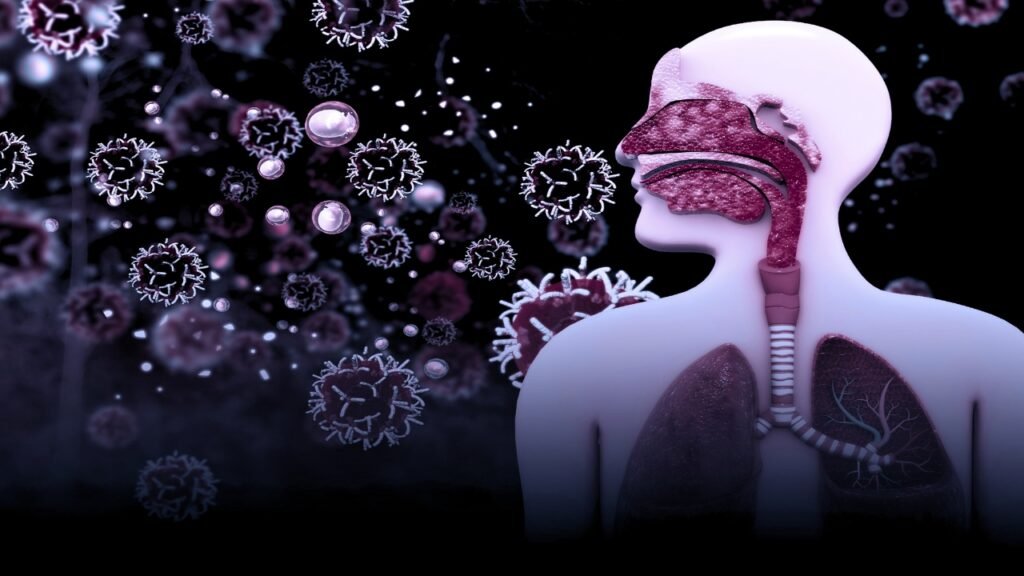
What Are the Types of Lung Cancer?
Lung cancer is broadly classified into two major types, depending on how the cancer cells look under a microscope and how they grow and spread:
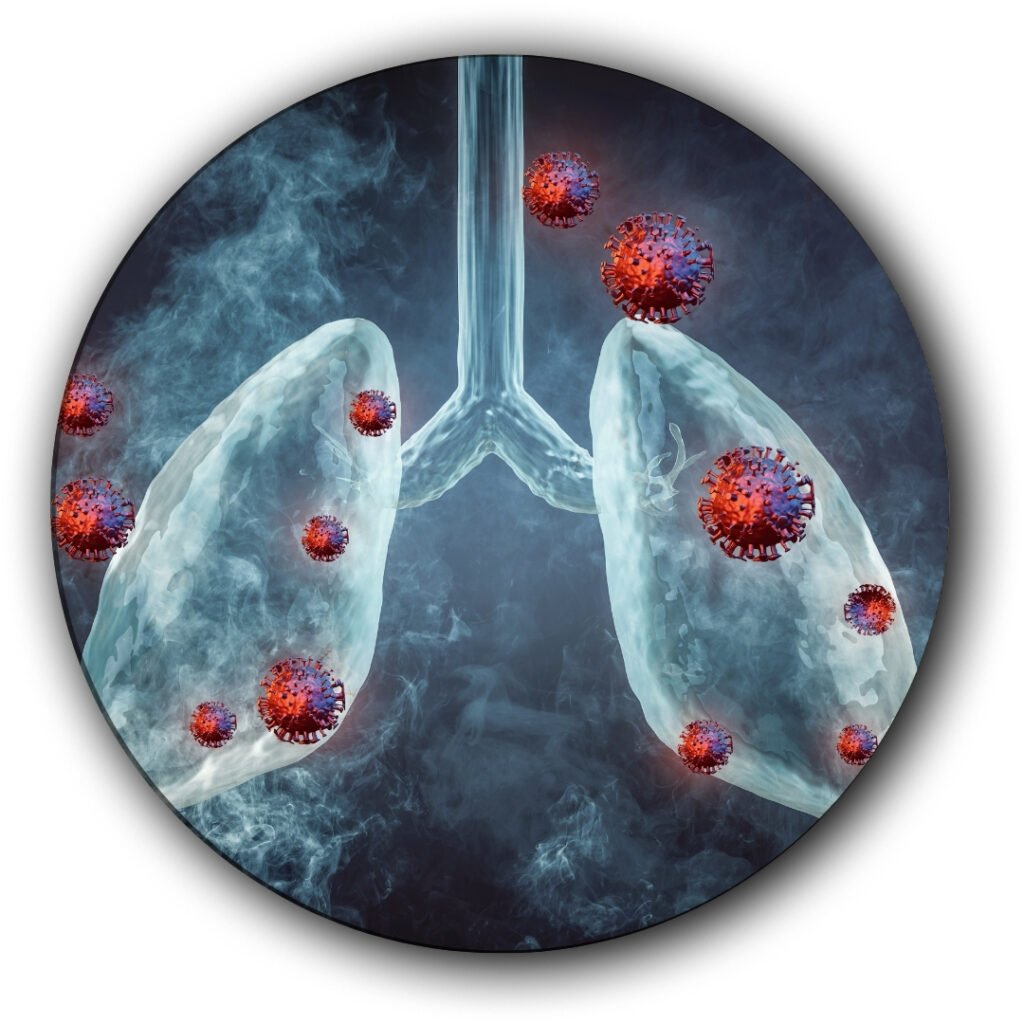
Adenocarcinoma
Often found in the outer parts of the lungs and is more common in non-smokers than other types.
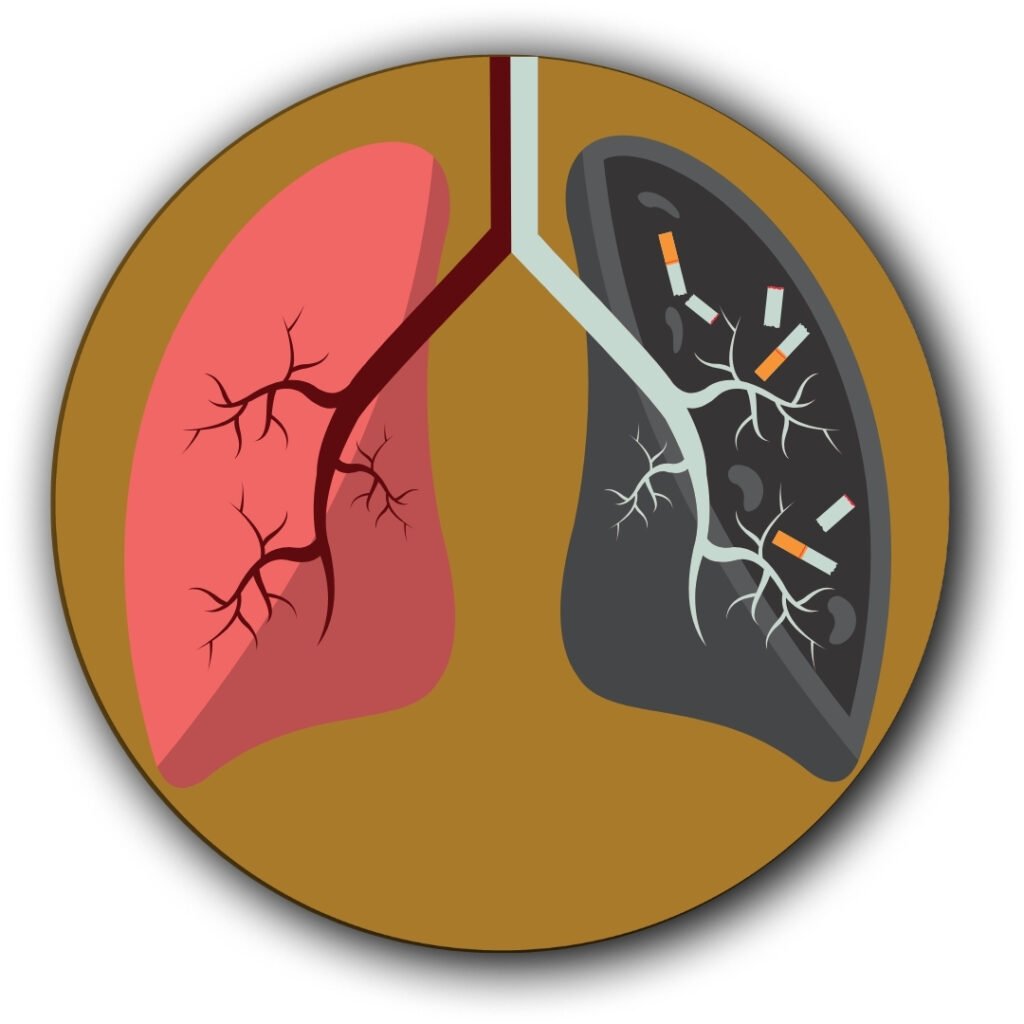
Squamous Cell Carcinoma
Typically begins in the central part of the lungs, often linked to smoking.
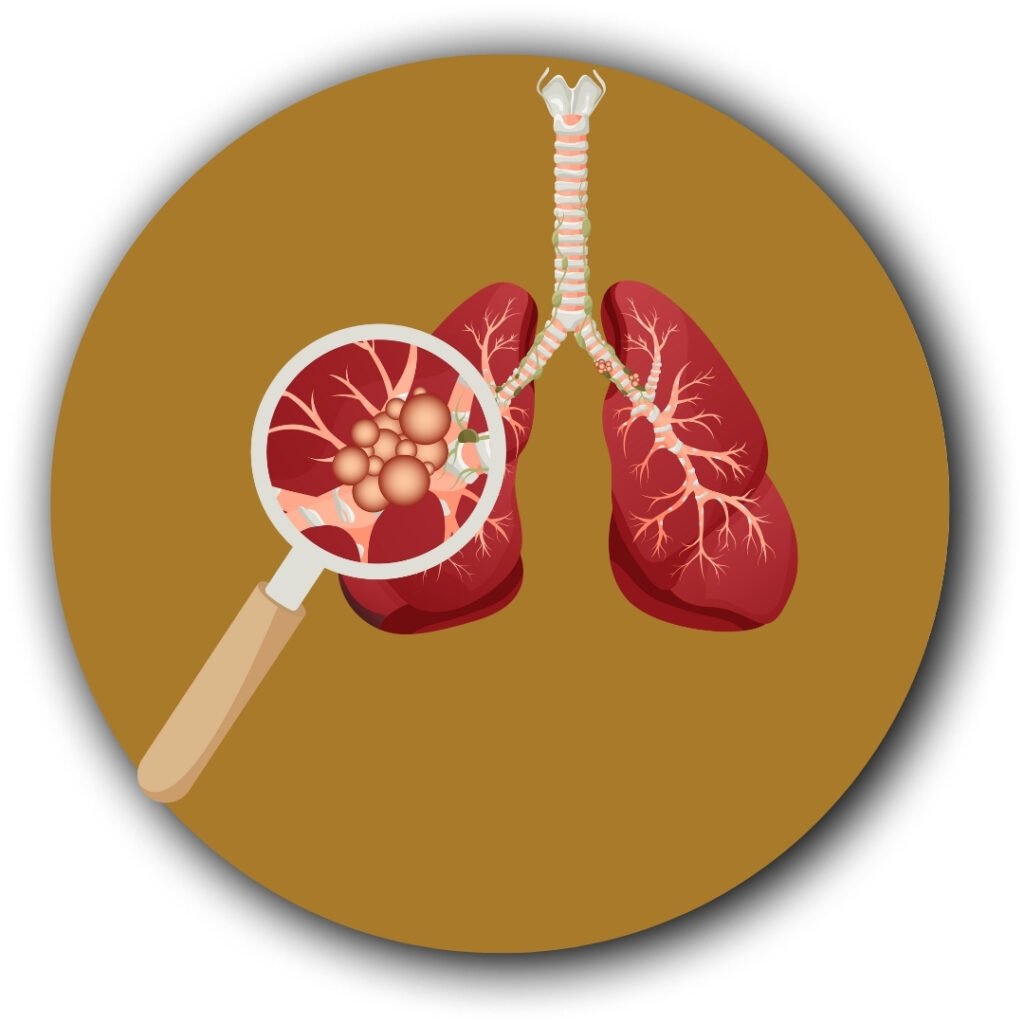
Large Cell Carcinoma
Can appear in any part of the lung and tends to grow and spread rapidly, making it more difficult to treat.

Small Cell Lung Cancer (SCLC)
This less common type makes up about 10–15% of lung cancer cases and is strongly associated with heavy smoking. Small cell lung cancer tends to grow quickly and can spread to other parts of the body at an early stage. Despite its aggressive nature, it often responds well to chemotherapy and radiation in early stages.
Understanding the type of lung cancer is crucial in determining the right line of treatment, including conventional and alternative approaches such as Ayurvedic lung cancer care, which aims to manage symptoms, support immunity, and improve overall quality of life.
Possible Complications of a Lung Cancer
Lorem ipsum dolor sit amet, consectetur adipiscing elit. Ut elit tellus, luctus nec ullamcorper mattis, pulvinar dapibus leo.
A New Approach to Cancer Healing
at Raghavan Cancer Care
At Raghavan Cancer Care, treatment goes beyond just managing cancer — it’s a complete journey toward physical, emotional, and spiritual wellness.

Metabolic Healing
Dr. Raghavan follows a powerful method inspired by Dr. Thomas Seyfried, focusing on the unique way cancer cells use energy. By supporting the body through special approaches like a ketogenic diet, this method offers a fresh direction in cancer care rooted in metabolic understanding.
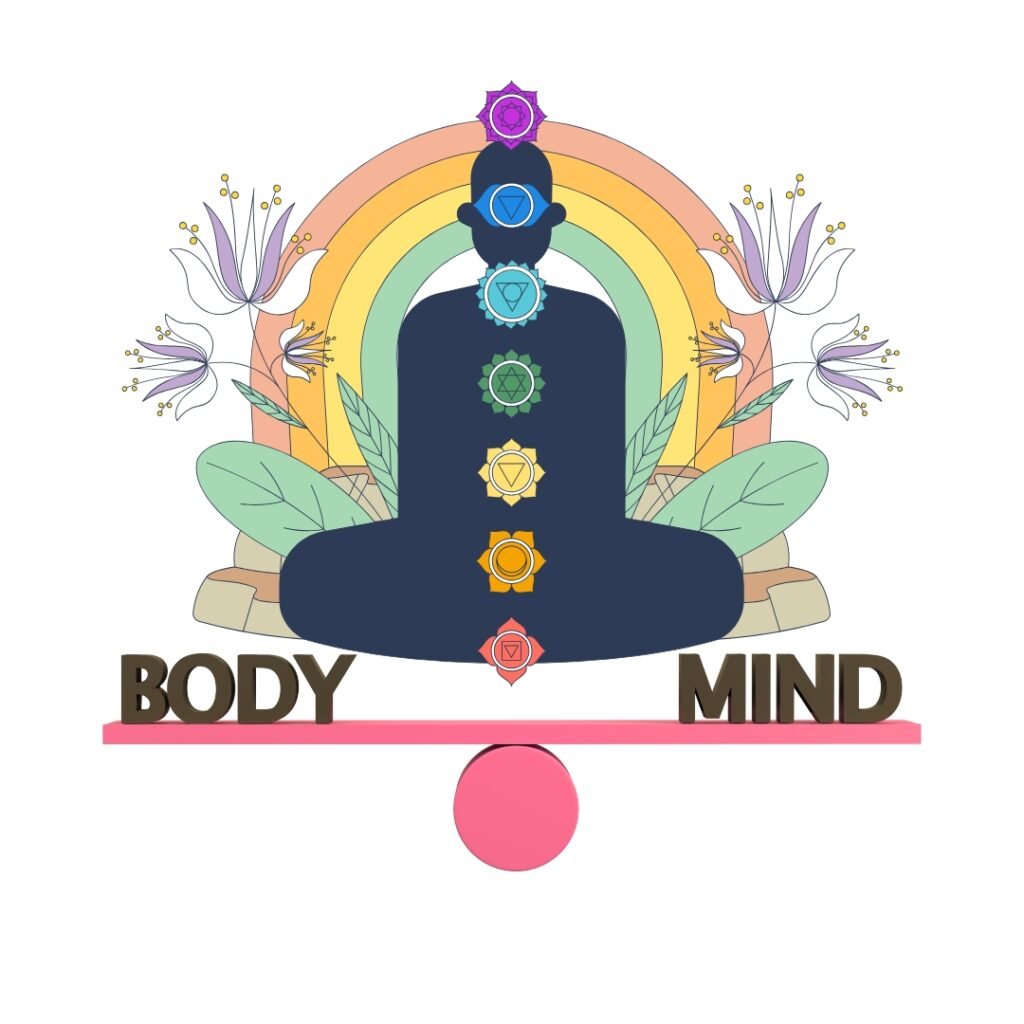
Mind-Body Balance
Taking inspiration from Dr. Joseph Mercola, our care also emphasizes the deep link between the mind, body, and spirit. At Raghavan Cancer Care, we believe that emotional and spiritual support is just as important as physical treatment in the healing process.

Food as Medicine
Dr. Wallach’s nutritional guidance has shaped our strong focus on diet. We promote clean, nutrient-rich meals and personalized nutrition plans to help strengthen the body and support recovery naturally.
